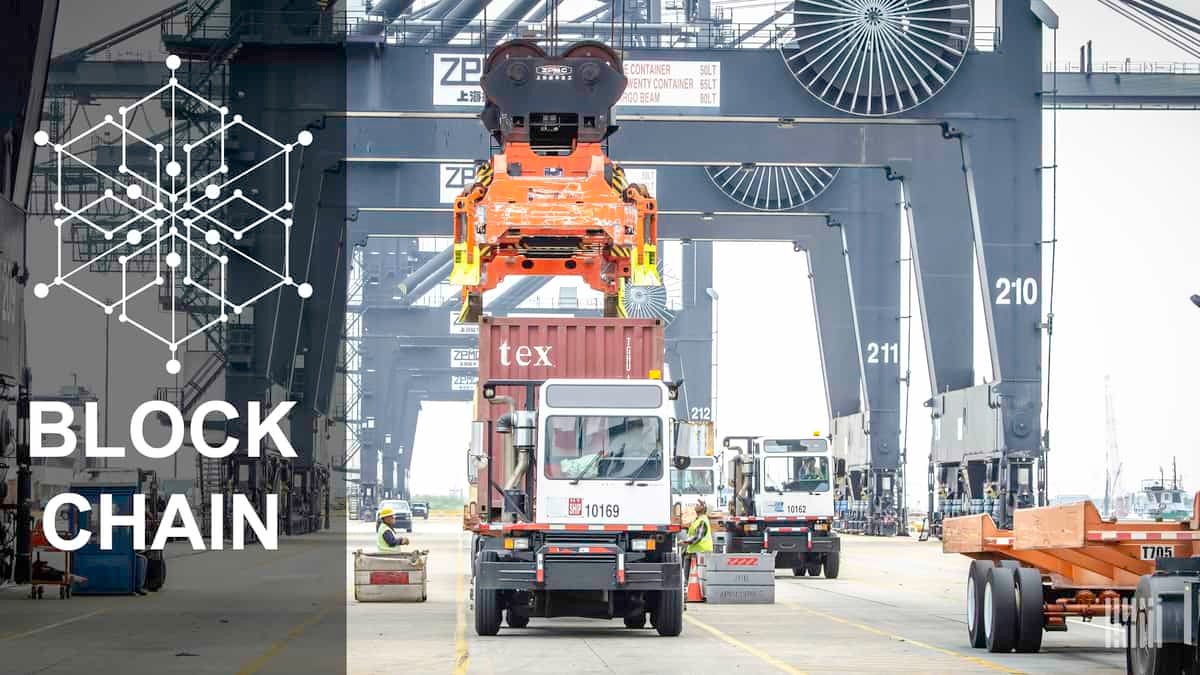Even as technology percolates within supply chains, logistics operations continue to be fraught with visibility issues. This problem stems from logistics stakeholders struggling to trust their partners both upstream and downstream in the value chain, jeopardizing data interconnectivity and the resulting efficiency gain.
Blockchain as a technology can be a powerful tool to infuse trust into a value chain, especially in situations that require transactions to be made based on data arising from different stakeholders in the network. FreightWaves spoke with executives from Data Gumbo, a blockchain-based smart contract platform, to understand how blockchain can be leveraged across the logistics industry to ensure seamless transactions.
“At Data Gumbo, we automate the execution of contracts between buyers and sellers using a combination of data held by those parties and other third parties to confirm those transactions have occurred. Our platform then automatically calculates the appropriate payments and pushes that information back in a pre-reconciled way to the parties’ systems of record — be that SAP, Oracle or QuickBooks,” said William Fox, chief product officer at Data Gumbo.
Data Gumbo works in the oil and gas logistics space, where it helps enforce trust into transactions incurred around the trucking of produced water that is hauled from oil wells to disposal facilities. Fox explained that the company frequently heard from trucking companies that complain of their payments getting delayed, as the usual 30-day payment terms get extended to over 45 days due to invoices getting disputed and kicked around before being paid.
A blockchain network serves to eliminate such disputes, while also reducing massive physical paper documentation that translates into saved operational costs. “Savings can be looked at in other ways. For instance, in the diesel context, there are 3-6 cents per gallon of saved costs on our platform. Getting paid on time reduces the interest charge of financing your customer, who’s not paying fast enough and less administration, middleware and subscription software that needs to be paid from your pocket,” said Fox.
To enable such transactions through the blockchain network, it is crucial for data that enters the system to be standardized across the value chain. Since it is not feasible to ask every stakeholder in the trucking supply chain to be compliant with data standards, Data Gumbo looks to bridge the gap by acting as a standardized aggregator.
“We utilize standards where they’re available. But we map our data to a standard model within our system. In essence, we aren’t trying to get the industry to standardize but use our internal model to map data,” said Andrew Bruce, the CEO of Data Gumbo. “This relieves companies of the burden to standardize while getting on the network.”
Data Gumbo’s quest to create seamless trusted transactions centers around ensuring the data it uses is reliable and with little margin of error. Within the blockchain consortium, the margin of error is capped at 1.6% for transactions to remain automated between two parties, with a larger margin of error in transactions needing manual intervention before approval.
“This way, companies become highly interested in data. This is because there is a high incentive in making sure the data quality is high, and data is accurate,” said Bruce.
Data Gumbo recently partnered with Texas Alliance of Energy Producers to deploy its interconnected blockchain network to its members, powering smart contracts that help stakeholders cut operational costs and increase efficiencies in commercial transactions. By ensuring a trusted environment for data sharing, Data Gumbo has enabled energy producers to capture the value and mitigate risk via better and informed decisions.











lindanhewal
Thanks for sharing
davidharper
Nice Post. Thanks For sharing this Article.